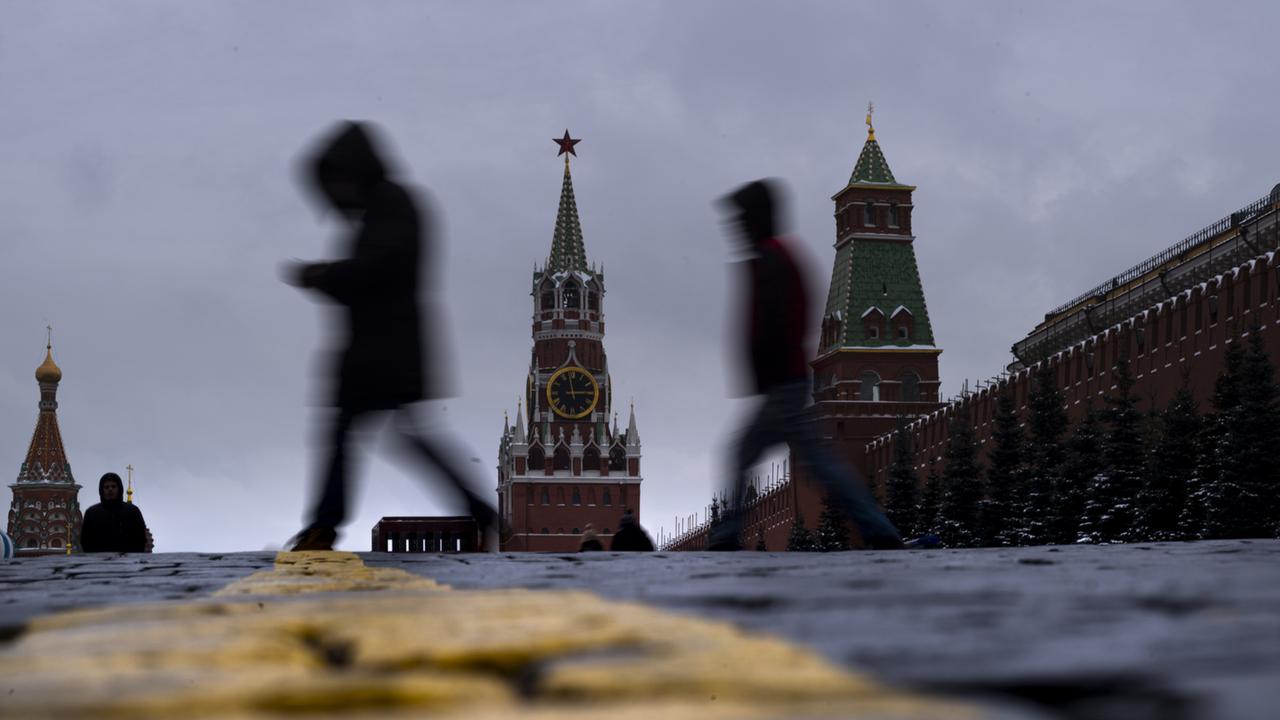Are Russian agents trying to drive a wedge between Ukraine, Turkey and Europe with fake protests? This is suggested by internal documents said to come from the Russian security apparatus.
By Manuel Bewarder, Florian Flade and Palina Milling, WDR/NDR
Two men with scarves covering their faces obviously don’t want to be recognized. In photos that surfaced on social media a few weeks ago, the two extend their right arms in the Hitler salute. On a nearby fence hangs a banner with the Ukrainian flag and the slogan in English: “Erdogan, the earthquake is a great revenge for Russian tourists! Alanya is next!” Alanya is a popular vacation spot in Turkey for Russian tourists.
The photos were reportedly taken in Paris and allegedly showed Ukrainian activists: on March 5, around 8 am, allegedly on Place Saint-Pierre in the 18th arrondissement. There are countless photos and videos of him on Facebook, Telegram, Youtube and TikTok. Other images show how a copy of a Turkish flag is being burned elsewhere in Paris. There are also pictures of graffiti with slogans such as “Stop Erdogan”, “Alanya Next” or “Stop Islam”.
Documents that WDR, NDR and “Süddeutsche Zeitung” were able to evaluate with international media partners describe how this fake campaign is supposed to work. The documents were leaked to London’s “Dossier Centre”, a research facility funded by Kremlin critic Mikhail Khodorkovsky.
provoke Erdogan
It is said that the strategy documents came from the Russian security apparatus and were written this year. It states that five masked people must participate in such provocations, send video recordings to Turkish media and distribute them on social media. “Accessible cities” are also listed where such actions could achieve the desired effect: Paris, The Hague, Brussels, Frankfurt am Main.
It reads like the script for an operation seemingly designed to fuel conflict and conflict within NATO. The procedure is being watched with great concern in the European security community. In fact, these fake Moscow-controlled protests have already taken place. The aim of allegedly anti-Turkish or anti-Muslim protests by alleged Ukrainians is apparently to get Turkish President Recep Tayyip Erdogan to reduce support for Ukraine and prevent Sweden from joining NATO.
Concrete topics are mentioned in the newspapers. Supposed Ukrainians are expected to show provocative reactions to the earthquake in Türkiye. And thus emphasize a “destructive Nazi character” of Ukrainian society under Zelenskyy’s leadership.
modest intervals
In the end, however, the action in Paris was a provocation of manageable proportions. The appearance of the masked protesters played no role in the French or European media. The photos and texts posted on social networks had a modest reach. The author of the article seems to evaluate the action as a success. The document almost proudly lists the links to the posts.
Western intelligence officials consider Russia’s actions described in newspapers as “absolutely plausible”. Part of the Russian disinformation strategy is to address existing conflicts, such as between Turkey and Germany or between Turkey and France. One of the documents entitled “Project >Anti-Erdogan<" states that there are "currently significant tensions" between Turkey and EU countries.
provocations against Turkey
In January, Danish-Swedish right-wing extremist Rasmus Paludan burned a copy of the Koran not far from the Turkish embassy in Stockholm, sparking protests in several Muslim countries. Paludan explained the burning as a protest against Islam and Erdogan’s alleged attempts to influence free speech in Sweden. A spokesman for the Turkish Foreign Ministry spoke of a “disgusting attack on our holy book” and urged the Swedish government to take action against Paludan.
Security circles have no indication that Russia had anything to do with Paludan’s actions. But the Russian secret service seems to have been watching events closely. The present project document at least describes how further tensions between the states could be provoked. It is proposed: trample the flag of Turkey and burn a portrait of Erdogan in Holland. Furthermore, graffiti insulting Erdogan must be plastered in all major European cities.
payment of protests
International media surveys suggest that traces of various actions in Europe actually lead to Russia. After that, for example, a man living in Russia, whose name is known to editors, may be involved in organizing protests. He not only shared the reports of the alleged protest action in Paris.
It seems that he was also looking for people who would pay to participate in preparing for these campaigns, for example on Facebook. Identical signs that were used at smaller protests in different countries also speak in favor of coordination in the background. When questioned, the man firmly rejected the accusations. He said his account was hacked. Shortly after the request, his account was deleted.
help erdogan
Wolfgang Ischinger, a former diplomat and head of the Munich Security Conference, sees reasons for Moscow to stage such protests: Putin achieves two goals with such targeted provocations. Support for Sweden’s entry into NATO may be hampered. At the same time, the emergence of anti-Muslim sentiment in Europe could strengthen conservative forces in Turkey and thus boost Erdogan’s chances in the next election.
Secret US defense apparatus documents that have recently been made public also indicate how deliberately Moscow apparently relies on controlled actors, paid protesters or even actors to forge political street protests. The Pentagon leak contains a US intelligence report on Moscow’s planned protest actions to destabilize the Republic of Moldova.
According to this, the Wagner mercenary group would have planned to train protesters with a Russian security company. According to the secret US document, this training for the alleged protesters was originally supposed to take place in Turkey in February. But the Turkish secret service stopped him.
In addition to WDR, NDR and the Süddeutsche Zeitung, the following media were involved in this research: Dossier Center, Le Monde, Danish radio DR, Expressen, Swedish television SVT, Norwegian radio NRK.

